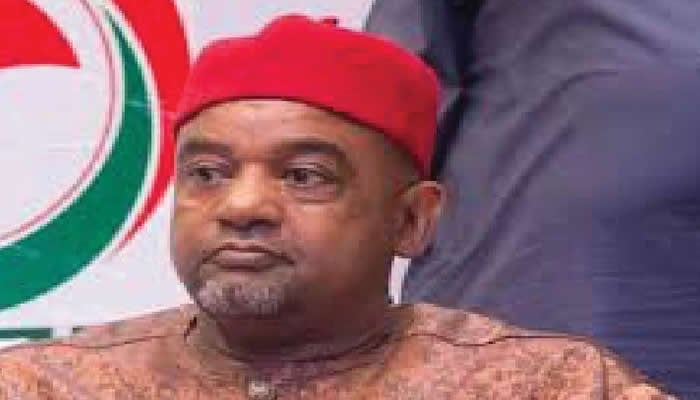A Party in Turmoil: The PDP’s Struggle for Redemption
The People’s Democratic Party (PDP), once the dominant force in Nigerian politics, has been navigating a tumultuous period marked by internal power struggles and declining electoral fortunes. After a 16-year reign at the federal level, the party lost power in 2015 to the All Progressives Congress (APC) and has since struggled to regain its footing. A major source of the party’s woes has been the deep-seated factionalism that plagued its ranks, particularly the bitter rivalry between loyalists of former Rivers State Governor Nyesom Wike and those aligned with former Vice President Atiku Abubakar, the party’s presidential candidate in the 2023 elections. This internal strife played a significant role in the PDP’s subsequent electoral defeats, further exacerbating tensions and fueling calls for leadership change.
The internal conflicts continued to escalate in the months following the 2023 elections, resulting in a series of leadership crises within the party’s National Working Committee (NWC). Suspensions and counter-suspensions of key party officials, including the National Publicity Secretary and National Legal Adviser, created confusion and paralyzed decision-making. The party’s internal disarray was further compounded by legal challenges to the position of National Secretary, a dispute that dragged on for nearly a year and deepened the divisions within the party. These internal battles played out in the public eye, tarnishing the PDP’s image and eroding public confidence in its ability to govern.
Amidst the chaos, the PDP’s Publicity Secretary, Debo Ologunagba, emerged as a key figure, working tirelessly to project an image of unity and resilience. He consistently emphasized the party’s broad grassroots support and internal democratic processes, contrasting it with the APC’s perceived top-down control. Ologunagba’s efforts to reassure party members and the public were, however, undermined by the continued defection of prominent figures to the APC and other parties. The exodus of governors, lawmakers, and other influential figures underscored the depth of the PDP’s internal crisis and the challenges it faced in regaining its former glory.
Despite the ongoing turmoil, the PDP pressed forward, holding its 100th National Executive Committee (NEC) meeting in June 2024. This crucial meeting marked a turning point, finally resolving the protracted leadership dispute over the National Secretary position and paving the way for a much-needed period of reconciliation. The party acknowledged the damage caused by the protracted internal conflicts and emphasized the need for unity and collective action to rebuild. The decision to hold a National Elective Convention in Ibadan, Oyo State, was viewed as a symbolic step towards a fresh start and a chance to reshape the party’s leadership and direction.
However, even as the party prepared for the Ibadan convention, new challenges emerged. Disagreements over the micro-zoning of NWC positions and the continued recognition of certain zonal leaders threatened to reignite old rivalries and create fresh divisions. The Wike faction, in particular, voiced strong objections to the proposed arrangements, warning of potential consequences if their demands were not met. The party leadership attempted to address these concerns through concessions and dialogue, but the underlying tensions remained, casting a shadow over the upcoming convention.
External observers, including political analysts, urged the PDP to prioritize reconciliation and adopt a flexible approach to resolving internal disputes. Professor Hassan Salihu, President of the Nigerian Political Science Association, emphasized the need for broader consultations and mutual concessions, urging the party to avoid punitive measures that could further exacerbate tensions. He stressed the importance of dialogue and compromise in achieving a successful outcome at the Ibadan convention. As the convention approached, the party faced a crucial test: could it overcome its internal divisions and emerge stronger and united, or would it succumb to the same factionalism that had plagued it for so long? The Ibadan convention held the potential for both rebirth and further collapse, making it a pivotal moment in the PDP’s quest for redemption. The outcome would determine whether the party could regain its footing and mount a credible challenge in the 2027 elections or whether it would continue its descent into political irrelevance.


